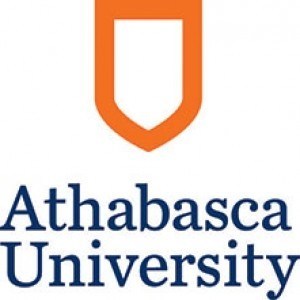Photos of university / #mcgillu
The Master's Degree in Law — International Human Rights and Development at McGill University offers a comprehensive and interdisciplinary program designed for students interested in understanding and addressing global issues related to human rights, social justice, and sustainable development. The program combines rigorous legal analysis with insights from political science, sociology, and international relations, providing a well-rounded education suitable for those aiming to work in international organizations, NGOs, government agencies, or academic institutions focused on human rights and development issues. Students will examine the legal frameworks that underpin international human rights law, explore the challenges of implementing human rights standards across different cultural and political contexts, and analyze the roles of various international institutions in promoting social justice. The curriculum covers key themes such as international humanitarian law, human rights litigation, development policies, and ethical considerations in global governance. Participants benefit from engaging with renowned faculty members who are experts in their fields, participating in seminars, workshops, and moot courts that emphasize practical skills and critical thinking. The program also offers opportunities for internships and collaborative projects with NGOs and international agencies, providing valuable real-world experience. Graduates of this program will be equipped to advocate for marginalized populations, influence policy reforms, and contribute towards the development of fair and effective legal protections on a global scale. This degree prepares students for careers in policy analysis, legal practice, research, and advocacy, fostering leadership in the pursuit of justice, equality, and sustainable development worldwide.
The Master of Laws (LL.M.) in International Human Rights and Development at McGill University is a comprehensive program designed to equip students with an in-depth understanding of the legal frameworks, policies, and practical issues surrounding human rights and development on a global scale. This program offers a multidisciplinary approach, integrating legal theory, international law, and practical applications to address some of the most pressing challenges faced by societies worldwide.
Throughout the program, students engage with core coursework that covers the principles of international human rights law, including the evolution of human rights, mechanisms for enforcement, and the roles of various international actors such as the United Nations, regional organizations, and non-governmental organizations. Additionally, students explore development law, focusing on issues related to economic development, social justice, and sustainable development, with an emphasis on the legal strategies necessary to promote equitable growth and reduce inequality.
The curriculum includes a variety of specialized courses that allow students to tailor their studies according to their interests and career goals. Topics may include the legal protection of vulnerable groups, human rights advocacy and campaigning, the rule of law in development contexts, and the challenges of implementing international human rights standards at the national level. Practical skills are emphasized through discussion papers, case studies, and internships, enabling students to apply theoretical knowledge to real-world situations.
Research is a significant component of the program, with students expected to undertake in-depth analysis on topics related to human rights and development, culminating in a research paper or thesis. Faculty members involved in this program are leading experts in the fields of international law, human rights, and development studies, providing students with mentorship and opportunities for engaging in cutting-edge research.
Located at McGill University, one of Canada's leading academic institutions with an international reputation, the program benefits from a diverse student body and faculty, fostering a rich environment for cross-cultural dialogue and collaboration. Graduates of the LL.M. in International Human Rights and Development are prepared for careers in international organizations, non-governmental organizations, government agencies, legal practice, academia, and advocacy groups committed to promoting human rights and sustainable development worldwide. This program is ideal for those who aim to make a meaningful impact on global human rights and development issues through legal expertise, advocacy, or policy work.
The Master of Law (LL.M.) in International Human Rights and Development at McGill University requires applicants to hold a first degree in law or an equivalent qualification from a recognized institution. Applicants must submit official transcripts demonstrating their academic performance, a statement of purpose outlining their interest in human rights and development law, two or more letters of recommendation from academic or professional referees, and a resume or curriculum vitae detailing their relevant experience. English language proficiency is mandatory for non-native speakers, typically demonstrated by TOEFL or IELTS scores meeting the university's minimum requirements. The program encourages applicants with diverse backgrounds, including experience in human rights advocacy, international law, or related fields. Once admitted, students are required to complete core courses in international human rights law, development policy, and ethical considerations, alongside elective courses that explore areas such as international humanitarian law, migration law, or gender rights. A research project or thesis is a fundamental component of the program, enabling students to explore specific topics in-depth. Participation in seminars, workshops, and internships is highly recommended to supplement theoretical knowledge with practical experience. The program aims to prepare graduates for careers in international organizations, governmental agencies, NGOs, or academic institutions focused on human rights advocacy and development initiatives. To maintain enrolment, students must fulfill all coursework requirements, participate actively in program activities, and adhere to the university’s academic policies. The typical duration of the program is one year for full-time students, with options for part-time study extending over two years. Financial aid options, including scholarships and assistantships, are available based on academic merit and financial need.
Want to improve your English level for admission?
Prepare for the program requirements with English Online by the British Council.
- ✔️ Flexible study schedule
- ✔️ Experienced teachers
- ✔️ Certificate upon completion
📘 Recommended for students with an IELTS level of 6.0 or below.
The financing options for the Law — International Human Rights and Development program at McGill University are designed to support students through various funding opportunities. Tuition fees for graduate programs at McGill vary depending on the student’s residence status; typically, international students pay higher fees than Canadian residents. For the specific program in International Human Rights and Development, tuition fees are assessed annually and are subject to change. In addition to the basic tuition, students should consider additional costs such as textbooks, living expenses, health insurance, and other personal expenses.
Funding sources available to students include fellowships, scholarships, and teaching or research assistantships. McGill University offers a range of merit-based scholarships for graduate students, which applicants can apply for during their admission process. These scholarships are competitive and are awarded based on academic excellence, research potential, and other criteria established by the university. International students are encouraged to seek external funding from governmental agencies, international organizations, and private foundations that support studies in human rights and development.
The Graduate Funding Office at McGill provides detailed information on available funding programs, application procedures, and deadlines. Many students also finance their studies through part-time work either on or off campus, adhering to work-hour restrictions for international students. Some students may qualify for government-sponsored student loans or research grants, depending on their country of residence and individual circumstances.
Moreover, specific grants and fellowships targeted at students pursuing development and human rights research may be available from organizations engaged in international development, human rights advocacy, and policy research. Students are advised to explore opportunities such as the Joseph-Armand Bombardier Canada Graduate Scholarships (CGS), Vanier Canada Graduate Scholarships, and awards from international agencies like the United Nations or the World Bank.
In summary, the financing of McGill’s Law — International Human Rights and Development program involves a combination of university scholarships, external funding, personal savings, and work opportunities. Prospective students should begin their funding search early by consulting the official university website, contacting the graduate financial aid office, and exploring external funding sources relevant to their field of study. With careful planning and proactive application to available funding programs, students can effectively manage the costs associated with their graduate education at McGill University.
The Master of Laws (LL.M.) in International Human Rights and Development at McGill University is a specialized graduate program designed for students interested in the legal aspects of human rights advocacy, international development, and related policy issues. The program aims to equip students with advanced knowledge of international human rights law, mechanisms for their enforcement, and the legal frameworks supporting sustainable development. It offers a multidisciplinary approach, integrating legal theory with practical applications in global contexts.
Students enrolled in this program at McGill University benefit from the school's renowned Faculty of Law, which has a distinguished reputation in international law studies. The curriculum typically includes core courses in international human rights law, development law, and related fields such as international humanitarian law, migration law, and international environmental law. Electives may allow students to tailor their studies toward particular interests, such as advocacy techniques, policy analysis, or regional human rights issues.
The program emphasizes practical skills through moot courts, internships, and collaborations with NGOs or international organizations. Students are encouraged to participate in conferences, research projects, and international moot competitions to enhance their understanding and professional networks. The faculty includes experts and scholars actively engaged in human rights activism, providing students with mentorship and insights into real-world legal challenges.
Graduates of the LL.M. in International Human Rights and Development often pursue careers in international organizations such as the United Nations, various non-governmental organizations, governmental agencies, or as legal practitioners specializing in human rights issues. The program also serves as a strong foundation for students wishing to continue their academic pursuits with doctoral studies.
The program can typically be completed within one year of full-time study, with options for part-time enrollment. Admission requirements generally include a law degree (JD, LLB, or equivalent), academic transcripts, letters of recommendation, and a statement of purpose outlining interest in the field. Language proficiency in English is also required, with TOEFL or IELTS scores.
McGill University’s location in Montreal provides a vibrant, multicultural environment conducive to studying international law. The university's extensive library resources, research centers, and global partnerships further enhance the educational experience. Overall, the LL.M. in International Human Rights and Development at McGill offers a comprehensive, interdisciplinary education designed to prepare students for impactful careers in the field of international human rights and sustainable development.



